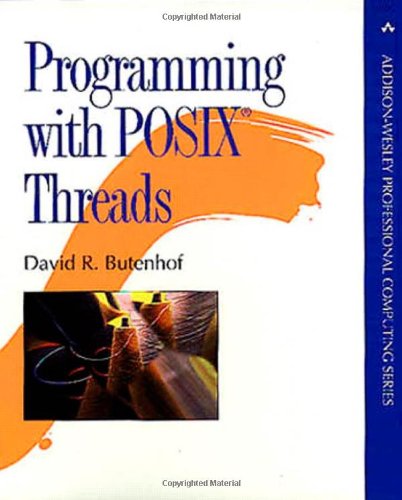Programming with POSIX threads download
Par fernandez lore le lundi, octobre 3 2016, 04:16 - Lien permanent
Programming with POSIX threads. David R. Butenhof

Programming.with.POSIX.threads.pdf
ISBN: 0201633922,9780201633924 | 398 pages | 10 Mb

Programming with POSIX threads David R. Butenhof
Publisher: Addison-Wesley Professional
To support POSIX Threads Programming: https://computing.llnl.gov/tutorials/pthreads/. For UNIX systems, a standardized C language threads programming interface has been specified by the IEEE POSIX 1003.1c standard. GO Programming with POSIX threads. In MacOS 10.6.6, a lock implementation is provided using the POSIX Threads API. This was the fifth and final day of my course in Advanced C++ and Threads Programming in Nanjing. Language: English Released: 1997. Pthreads (a.k.a POSIX Threads), is another parallel programming model over Shared Memory Computers, which is categorized to Threads Based Model (the other is message passing based model). Instead, all the "threading" was performed entirely in user space by a pthread (POSIX thread) library chosen for specific program. Thread" is just a name for a basic software "thing" that can do work on a computer. In multithreaded programming, we often speak of locks (also known as mutexes). Implementations that adhere to this standard are referred to as POSIX threads, or Pthreads. This is simple: to make these function threads-safe in an effective manner, glibc uses a mutex. Today, I will write this post for my own reference using the POSIX threads and how to have the best usage of joins and mutex implementation. A thread is smaller, faster, and more maneuverable than a traditional process. It was primarily created to support Java development but was later extended to support other programming languages. It is hard to believe, that earlier Linux kernels did not support threads. Publisher: Addison-Wesley Professional Page Count: 398. This book is about "threads" and how to use them. The mutex is already locked by the same thread. See Butenhof's book, Programming with POSIX Threads, §6.6.4.